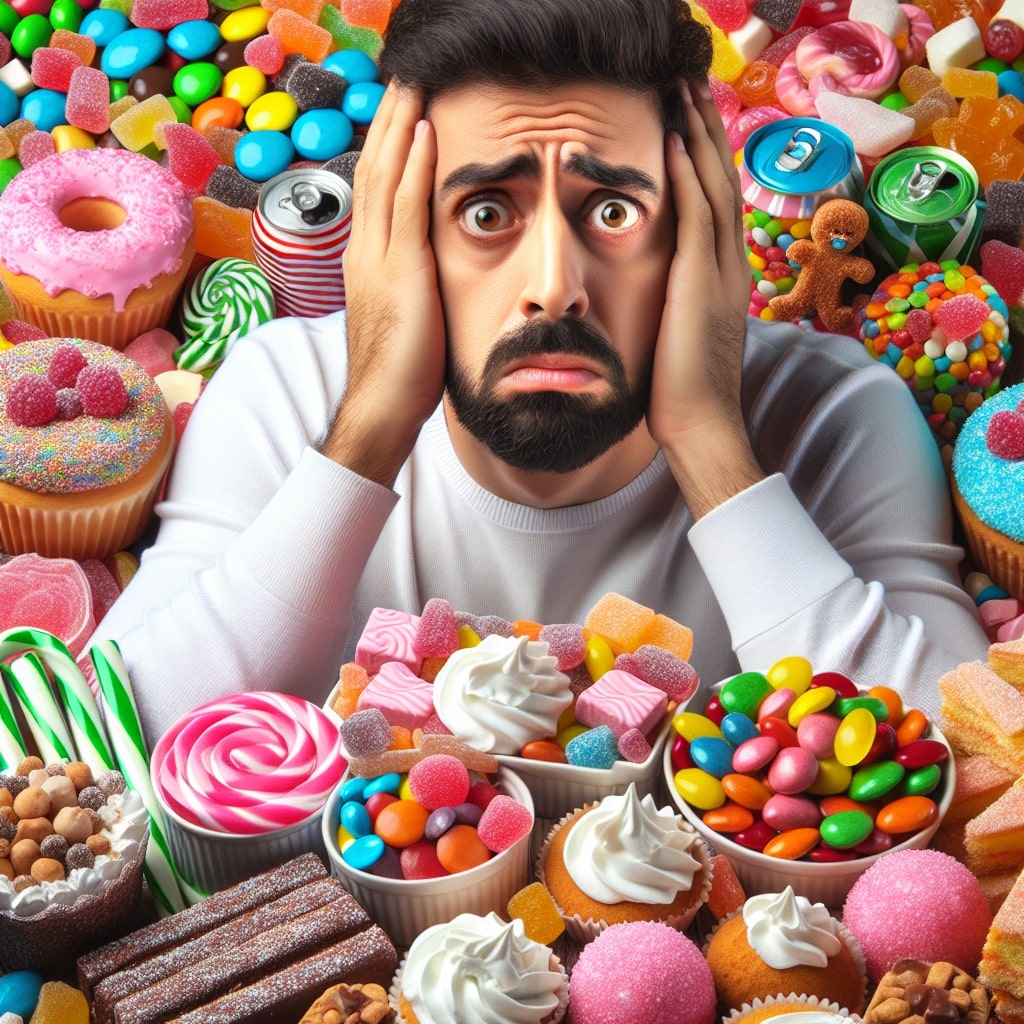In today’s fast-paced world, sugar is everywhere. From your morning coffee to your late-night snack, sugar has a sneaky way of infiltrating your diet. But how do you know when you’re consuming too much? This blog will help you identify the signs and guide you to make healthier choices.
1. Energy Highs and Lows
Do you feel a surge of energy right after you eat but then crash shortly afterward? This roller-coaster effect is a classic sign of sugar overload. When you consume too much sugar, your blood sugar levels spike quickly and then plummet, leaving you feeling drained and cranky.
2. Constant Cravings
Are you constantly craving sweets, even after a satisfying meal? Sugar can be addictive, and consuming it frequently can lead to a cycle of cravings. If you find yourself needing a sugary fix throughout the day, it’s a clear indication that you’re probably consuming more than your body needs.
3. Weight Gain
Have you noticed an unexplained weight gain? Excess sugar is often stored as fat in the body. If you’re eating a lot of sugary foods and drinks, you might start to see unwanted pounds creep up—especially around your midsection.
4. Skin Problems
Is your skin breaking out more often than usual? High sugar intake can lead to increased insulin levels, which can cause inflammation and lead to acne breakouts. If you’re battling persistent skin issues, it might be time to examine your sugar consumption.
5. Mood Swings
Do you experience mood swings or feel irritable often? Your diet can significantly impact your mood. Consuming too much sugar can lead to emotional highs and lows, making you feel happy one moment and irritable the next.
6. Dental Issues
Are you facing more dental problems than before? Sugar is known to be a primary culprit in tooth decay. If you’re experiencing an increase in cavities despite good oral hygiene, your sugar intake could be to blame.
7. Trouble Sleeping
Do you find it hard to fall asleep or stay asleep? Excess sugar can interfere with your sleep patterns, making it difficult for you to get a restful night’s sleep. If you notice you’re tossing and turning more than usual, your late-night sugar habit might need reconsideration.
What Can You Do?
Recognizing the signs is the first step. Here are a few tips to help you reduce your sugar intake:
– Read Labels: Many processed foods contain hidden sugars. Learn to read nutritional labels to make informed choices.
– Choose Natural Sweeteners: Opt for natural sweeteners like honey or maple syrup instead of refined sugars.
– Eat Whole Foods: Whole foods like fruits, vegetables, and grains can satisfy your sweet tooth without the added sugars.
– Stay Hydrated: Sometimes our bodies confuse thirst with hunger. Drink plenty of water throughout the day to help curb unnecessary snacking.
By paying attention to your body’s signals, you can take control of your sugar consumption and make healthier choices. Your body will thank you for it!

